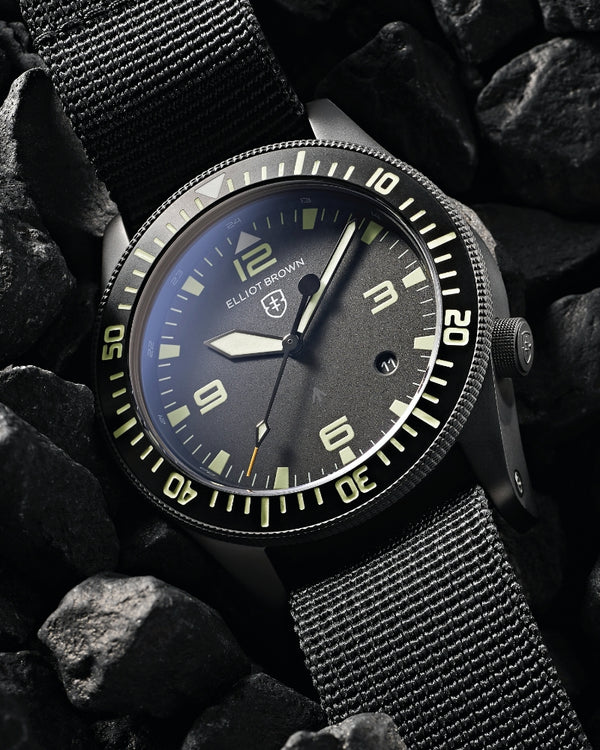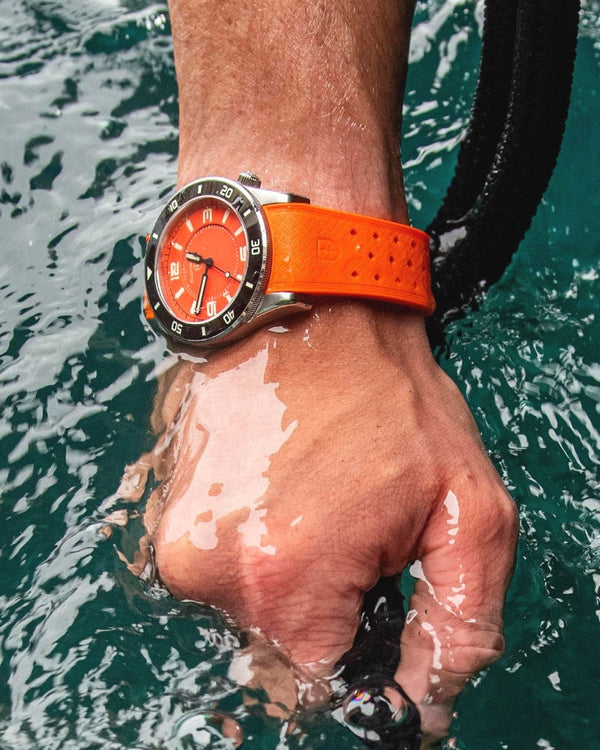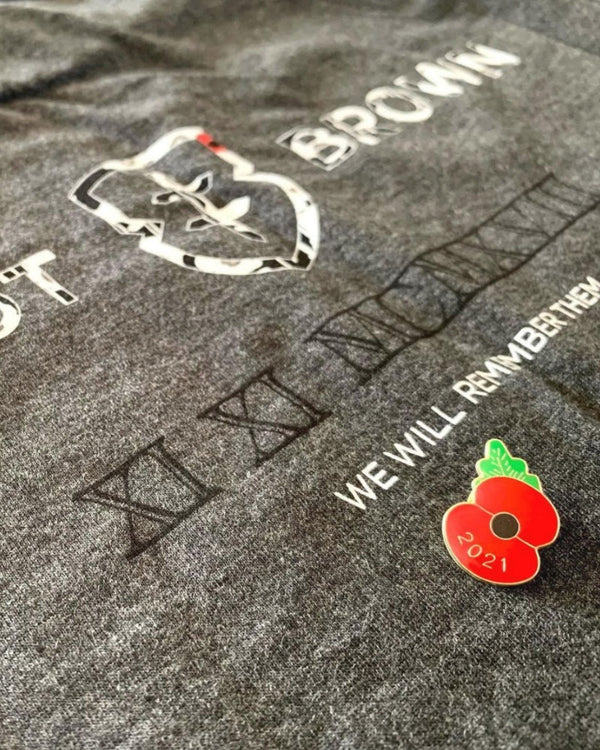What is PTSD - Joe Winch / 65 Degrees North
In 2018, we received a call from Richard Morgan, founder of 65 Degrees North. Rich has an infectious nature and he’s a doer. We like doers.
His organisation gives injured personnel a place to heal and fulfill dreams through extreme challenge, endurance and camaraderie. The big mental and physical arms he wraps around those near him are wider in reach than I think he realises.
Fast forward to early March and I found myself at the launch of the 65 Degrees North Everest campaign, hosted at Inmarsat.
Each member of the team introduced themselves with the kind of organized professionalism that embodies their summit attempt. Each and every one made me stop and think just what an immense challenge they are about to encounter, then Joe Winch introduced himself.
When he finished, I stood to applaud, with tears streaming down my face. His speech hit me square in the chest in a profound way. Despite his obvious discomfort, Joe gave the most eloquent description of complex PTSD I have ever heard. We spoke afterwards and I asked Joe if he would let us share his story because if his comments help anyone to recognize their own injury or that of another, it will be a small achievement and might possibly be the catalyst that starts another journey towards recovery.
It got us thinking how can we create a bigger voice for Joe and the millions injured in this way – with all our connections we must be able to do something – hopefully a plan will emerge but in the mean time, here are Joe’s words….
10 minutes, 1600 words, PTSD Recovery, 65Degrees North, Inmarsat, by Joe Winch:
Before I was diagnosed with acute Complex Post Traumatic Stress Disorder, I was enjoying a very successful career as an Officer in the Royal Marines, I was a proud husband and father, we owned our own house by the beach, and I was optimistic and excited about the future… it really did feel like I had everything.
But then almost 10 years to the day after my first deployment, life quite suddenly became incredibly difficult. With hindsight these difficulties had begun just days into my first tour, but it was so subtle then that is was almost imperceptible. Now though, they had accumulated in a way that caused my situation to become extremely fragile. I was struggling to sleep, was getting very tired, I couldn’t focus or concentrate for too long, and I was withdrawing from my family – which is very unlike me.
But within a few short months it had become far more acute – sleep was all but impossible, I was absolutely exhausted, confused and often overwhelmed, I became aggressive, and I couldn’t tolerate being around anyone – particularly my own children. And by now I was realising that something wasn’t quite right, but I just thought I needed a bit more sleep, and there were many reasons why I might be tired, so I just normalised the problems and persevered – which is when life really came off the rails.
Fortunately though, around this time, I had a routine hearing test – which, in the event, was anything but routine. I sat in a small soundproof booth wearing a set of headphones and a series of pitches were played into my ears to assess for hearing loss, and suddenly it felt like a bomb had gone off, as the pitches provoked the most extreme response in me, I was absolutely furious, and extremely confused – trying to figure out what on earth had just happened.
And after this I became very aware of how sensitive to noise I was, not loud noise – just noise in general, I could feel it, like a knot in my tummy, and whenever it was louder or unexpected it would send these electric shocks throughout my body, causing my eyes to close, my head to pound, my heart to explode, and the anger would always follow.
So I was convinced there was a serious problem with my ears, and in my desperation I made an appointment with my Doctor – where I described how my ears were the cause of my many problems. The Doctor listened carefully, but eventually informed me that there was little wrong with my ears, that what I had experienced was in fact a flashback, and that I was suffering from an acute response to some prior traumatic experience – I had Post Traumatic Stress Disorder, and I had it very badly.
At first, I couldn’t believe this, throughout my career I had looked at others around me and thought that if they weren’t suffering – then I couldn’t possibly be suffering. But in the days after my diagnosis, I slowly realised how flawed this view was, because – firstly, I had no idea whether those others were suffering or not (and, as it would turn out, many of them were), and secondly, in considering our experiences at war I was comparing the hyper-abnormal with the hyper-abnormal, and in so doing I had unhinged myself from, and lost all reference to, normal life.
And this realisation was extremely disorientating, because I suddenly became aware, for the very first time, that I had experienced an extraordinary amount of trauma, and that the volume and frequency of those traumas had done an incredible amount of damage to my brain and body. And as I came to understand all this, the life that I had led to that point, where I knew with confidence who I was, what I had done, and where I was going – disintegrated.
And that is how my battle with PTSD began – years after my operational deployments, miles from any danger, and in the comfort of normal life – where everything should have been great, but it wasn’t – it was out of control, everything was overwhelming, and I was battling for my life.
Now, treating PTSD can be straightforward – where the trauma is isolated and obvious, like a car crash, and recovery can be swift. But with chronic trauma – treatment and recovery is far more complicated and a lot less certain – which is the reality that many of us suffering from PTSD in the military face. There are treatments that help, and which can calm some of the more chaotic memories and symptoms, but the neurological and physiological damage is spectacular, and one can’t just miraculously un-have years of trauma.
So, those that make the most successful ‘recoveries’ are those that treat PTSD as a very serious life changing injury, which demands that life changes. And the surest route to ever greater misery is where life doesn’t change, where someone clings on desperately, and doubles down on a way of life that is slowly killing them.
And this is what makes mental health injuries so difficult to recover from, because (first) we have to accept that much of what we thought was true about us and our world was in fact the dangerous creation of a hideous disorder. And second, to overcome this, we have to embark upon a journey to rediscover who we are, and how to live, all over again.
And it takes a monumental leap of faith to do this, to relearn what it is to feel safe, loved, and happy again, to rediscover fun and laughter, and to immerse oneself in the full breadth of emotions and feelings again. And such a recovery, of course, needs time – lots of time. It’s a spectacularly slow process.
But I persevered, and very gradually, I began to get a little better – I started to calm down, and life started to creep back in. But all too quickly, the very important but narrowly focussed, clinical part of my recovery was exhausted. It was over, and although I might have felt a little better – I still struggled tremendously with life, and I still didn’t really know who I was yet. I had taken that leap of faith, committed to breaking from the past, and now I found myself right back at the beginning and as vulnerable as ever.
And although daunting, this was a really important lesson – because recovering from any life changing injury and learning to live all over again, is far more than ‘just’ a clinical process. It goes on forever and happens everywhere. And so the challenge became one of constantly seeking out a ‘place’ that would offer me the opportunity to continue my recovery – within the limitations of my symptoms – to carry on exploring myself in a safe and constructive environment, surrounded by understanding and supportive people.
For some, suffering with PTSD, they find this place sailing or surfing, being out on the water; others find it cycling, travelling quietly through the hills; others still find their place wherever there is a spectacular view and great company, where they can take in their environment and just be.
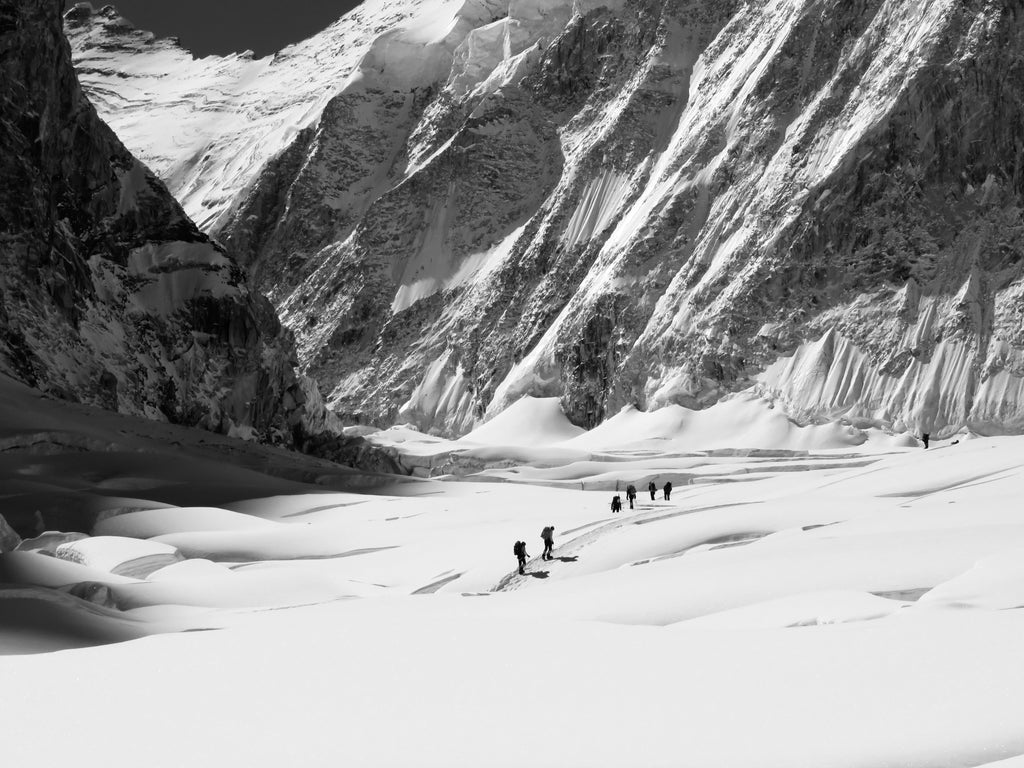
For me though, it was the mountains that I wanted to escape to – that is where I have always felt most comfortable. Yet since getting unwell, I had lacked both the confidence and the opportunity to do this safely – the obvious risk being that I might simply never return.
That is why 65 Degrees North is so important – because they offer us the chance to dramatically break out of the mundane, exhausting, and incredibly tedious routine of recovery, and instead they propel our recoveries forward – rehabilitating through incredible life changing adventures.
My own recovery has been painfully slow and very difficult, but since the opportunity to climb the highest mountain in North America with 65 Degrees North – my recovery has been given a new and exciting energy and purpose; I have rediscovered my enthusiasm for life; and my confidence and self-esteem has returned in abundance… helping me to gently push the boundaries of my symptoms and carve out that new life for me and my family.
But, for me, what makes 65 Degrees North so unique – is not just its incredible life-changing adventures, it is also its exceptional people. Because when I am with Rich Morgan, Andy Keeling, or Jonathan Thomson – the leadership of 65 Degrees North, or my Everest team mates – Brendan, Scott, Tom, Leesa, and JB – I have the confidence and the faith to do so much more, to go so much further, and to climb so much higher.
And the more I challenge myself, the more I learn and discover, so the more I recover, and the better I become. And thanks to 65 Degrees North, Rich Morgan in particular, my wife has a husband again, my children have a father again, and I have a life and a future again – which is the greatest gift anyone can ever give.
For me, climbing Everest is about ‘proving’ that with determination and support, it is entirely possible to overcome even the worst psychological injuries of war.
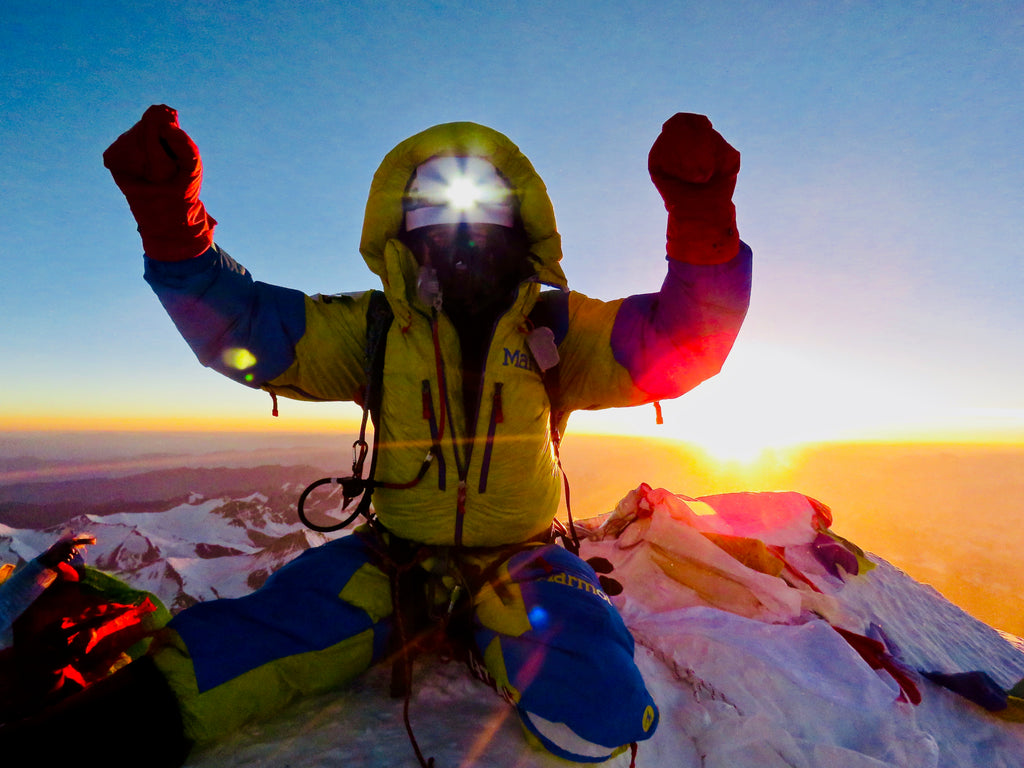
So although I still struggle, I am not a victim, and I will never let my PTSD justify its bizarre and destructive behaviours – I will always keep fighting, wherever I am, whatever I am doing, because that’s who I am, Joe Winch, proud husband, father, Denali and Everest team member, and Royal Marines Commando.
Thank you.

